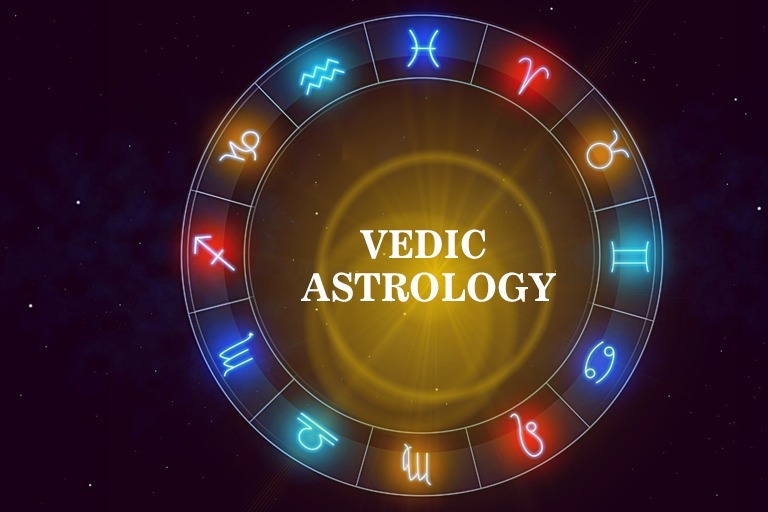
Vedic astrology, or Jyotish Shastra, is an ancient system of astrology that provides deep insights into various aspects of human life, from personality traits and relationships to career choices and spiritual development. One area where Vedic astrology is especially valuable is in understanding the health and well-being of an individual. Unlike conventional medical systems, Vedic astrology For Vedic Astrology a holistic perspective on health, looking at the influence of the planets and stars on the body, mind, and spirit. By examining an individual’s birth chart, astrologers can identify potential health issues, the predisposition to certain conditions, and areas of life that may require special attention. This article explores how Vedic astrology can be used to understand your body’s needs and maintain overall health.
In Vedic astrology, the 12 houses of the birth chart represent different areas of life, including health. The 6th house, specifically, is associated with health, illness, and physical vitality. This house reveals a person’s predisposition to certain health conditions, potential weaknesses in the body, and how they approach daily routines, including nutrition, exercise, and self-care. If the planets in the 6th house are strong and well-placed, it suggests good health and resilience, while challenging planets in this house may indicate susceptibility to illness or stress. By analyzing the condition of the 6th house and its ruling planets, Vedic astrologers can provide guidance on preventative health measures and how to manage potential health risks.
Another key factor in Vedic astrology’s approach to health is the planetary rulers of the body’s organs. In this system, each planet is believed to govern specific body parts, and their positions in the birth chart can provide clues about a person’s health tendencies. For example, the Sun rules the heart, vitality, and overall energy levels, while the Moon governs the digestive system and the emotional state, which can affect overall health. The Mars governs muscles and physical endurance, and the Venus influences the reproductive system and overall physical beauty. Understanding how these planets are positioned and aspect one another in the chart can offer insights into areas where a person might experience health challenges or where they may have natural strengths.
The Ascendant (Lagna), or rising sign, is also a crucial factor in understanding an individual’s physical constitution and health tendencies. The Ascendant represents the physical body and how it expresses itself in the world. The sign placed on the Ascendant provides clues about the individual’s general physical appearance, energy levels, and overall health. Additionally, the planetary ruler of the Ascendant sign influences the individual’s vitality and resilience. For instance, if the Ascendant is in an Earth sign like Taurus or Virgo, the person may have a robust, stable constitution and a strong immune system. However, if the Ascendant is afflicted by malefic planets or placed in a water sign like Pisces, the individual may be more sensitive to stress or prone to health issues related to emotional well-being.
Vedic astrology also takes into account the Dasha system, which is a unique predictive tool that can reveal the planetary periods a person will go through at different times in their life. Each planet has its own Dasha period, and the period of a malefic planet like Saturn or Mars may be associated with physical challenges, while benefic planets like Venus or Jupiter may bring periods of health and vitality. By understanding the timing of these planetary periods, individuals can anticipate potential health issues and take proactive steps to maintain their well-being. For example, if an individual is about to enter a Dasha ruled by a planet associated with illness or stress (such as Saturn, Mars, or Rahu), they may be more susceptible to health issues and can take extra precautions during this time.
Another important aspect of Vedic astrology for health is the concept of doshas (imbalances in the body’s energies) derived from Ayurveda, the traditional Indian system of medicine. Ayurveda recognizes three primary doshas—Vata, Pitta, and Kapha—which correspond to the elements of air, fire, and water. In Vedic astrology, the influence of the planets can exacerbate or balance these doshas. For example, an individual with a predominance of Vata energy may be prone to anxiety, restlessness, or digestive issues, while someone with a Pitta predominance may struggle with inflammation, high blood pressure, or digestive problems related to excess heat. By examining the birth chart and understanding which dosha is most dominant, astrologers can provide guidance on diet, lifestyle, and exercises that can help balance these energies and improve overall health.
In addition to identifying potential health risks, Vedic astrology offers remedies to help mitigate any negative influences on the body. These remedies are rooted in the belief that the planets and stars have a profound impact on our physical and emotional well-being. Common remedies include wearing specific gemstones associated with planets, chanting mantras, or performing rituals (pujas) to appease malefic planets or strengthen benefic ones. For instance, wearing a gemstone such as emerald (associated with Mercury) may help improve communication and mental clarity, which can have a positive impact on mental health. Additionally, daily practices like yoga, meditation, and Ayurvedic herbs can be used to balance the body’s energies and maintain overall health. By incorporating these remedies, individuals can align themselves with the cosmic forces that influence their health and well-being.
In conclusion, Vedic astrology offers a unique and comprehensive approach to understanding health by examining the positions of the planets, the influence of the 6th house, the Ascendant, and the planetary periods through the Dasha system. It provides valuable insights into an individual’s physical constitution, predisposition to illness, and potential health challenges. By understanding these astrological factors, individuals can take proactive steps to maintain balance in their bodies and mind, making lifestyle choices that support their well-being. Additionally, remedies such as gemstones, mantras, and Ayurvedic practices can help mitigate negative influences and promote healing. In this way, Vedic astrology can serve as a powerful tool for achieving optimal health and vitality.